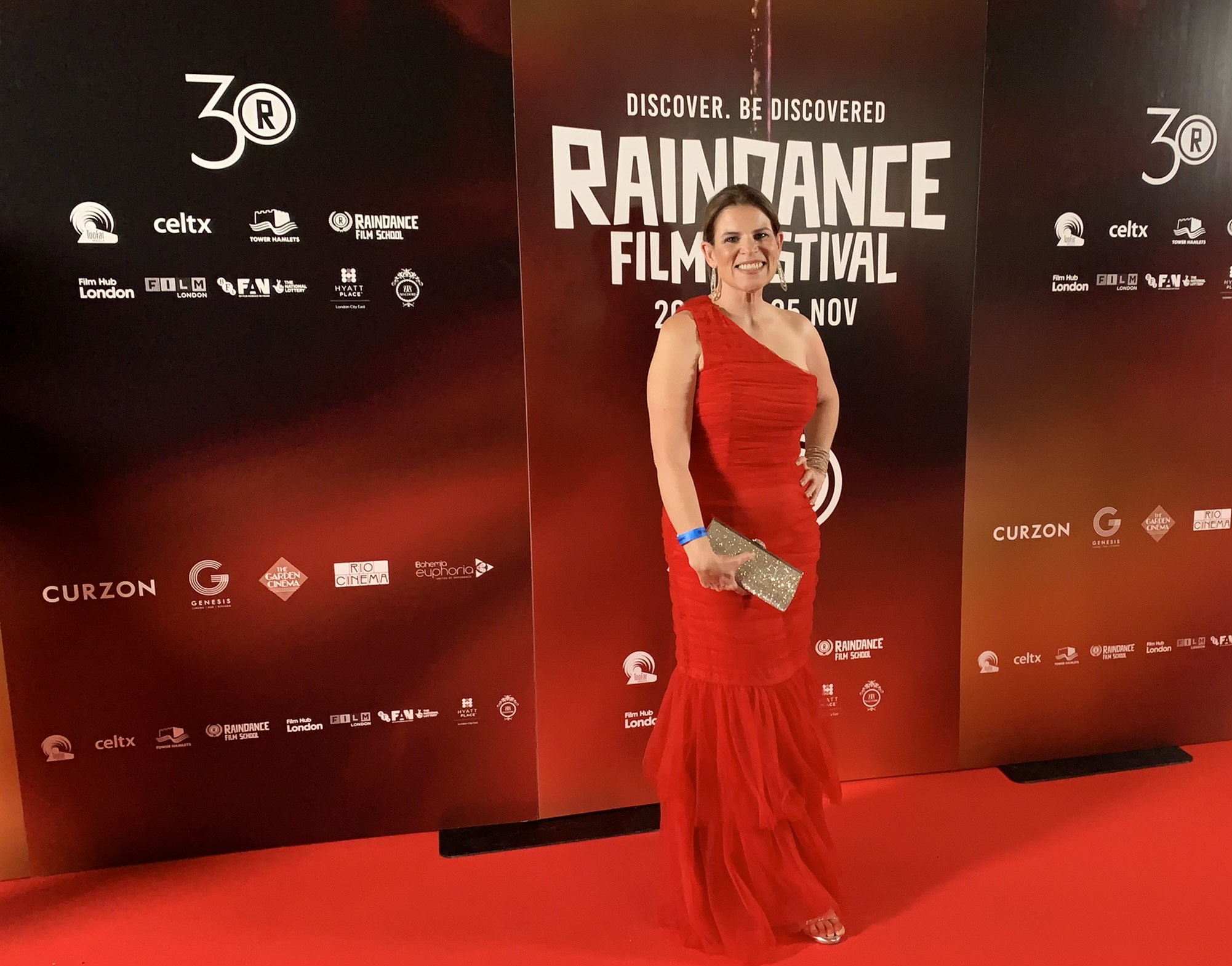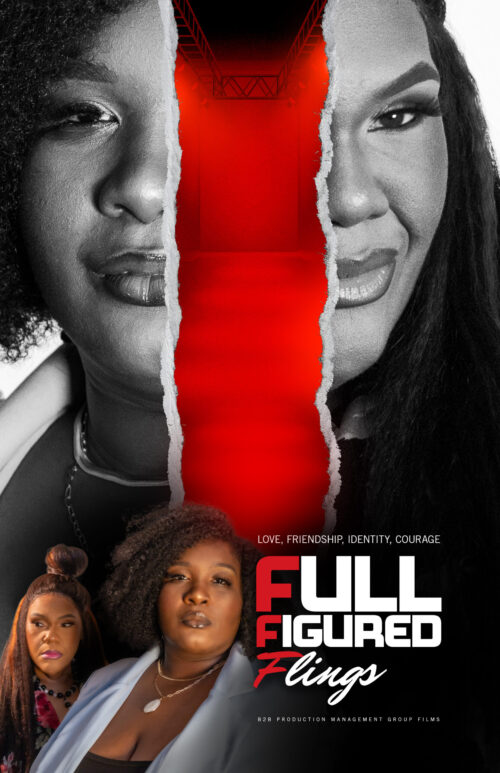We Speak Actors
Acting, producing and always learning: Stacey Edward Harris’s success in the film world

Stacey Edward Harris is an actress, producer and writer who’s currently studying at LA’s premier acting school, Baron Brown Studio. She has worked many times with the UK’s National Film and Television School (NFTS) and has shared the screen as an actress with big names including Downton Abbey’s Joanne Froggatt. Stacey is appearing in upcoming films ‘The Descent of Sanity’, ‘Morris Men’, and ‘Love Without Walls’. She tells us about her childhood dreams of acting, how she got her big break, and the sci-fi film that she’s penned herself.
Tell us about your beginnings in the film industry.
“I’ve always loved films – even as a child hearing the brass-band theme tune of Metro-Goldwyn-Mayer at the start of a movie made me feel like I was being transported to a different world. So in 2013 when I was offered the chance to be an extra in a feature film, I jumped at it – and I got the bug! At that point I had young children and was a singer in the evenings and weekends, so it was difficult to move into an industry that is so unstructured and changeable. I joined some supporting artist agencies and carried on doing extra work when I could, and used that time to watch and learn. When my children were older and I had more free time, I took acting courses and started to look for small parts in independent films where I was able to learn an awful lot and get experience on set. I just took it from there. I currently study with the Baron Brown Studio in LA and that has been a game-changer for me. The knowledge and the skills they teach help to create confidence – it gives you a steel backbone. The work has been coming in steadily since then.”

Who inspired you to become an actress?
“Bette Davis was my favourite actress growing up. She could shrivel a person with a look! And when she was happy, I was happy; she had the power to take you along on her journey. Meryl Streep and Kate Winslet are also favourites – their versatility is fantastic. It’s a wonderful thing to be able to make people see things from a different perspective because of your skill as an actor, like Kate Winslet does in ‘The Reader’.”
What have been your favourite projects to date?
“’The Descent of Sanity’, a feature by Carlett Eagle Productions and directed by Johnny Read and AJ Dodds, was a very real picture of what can happen to a family when a child is abducted and killed. It was difficult at times, staying in character for long periods, but Johnny Read and Alice Loftus were fantastic and we were like a little unit. I’m also appearing in ‘Morris Men’, a brilliant film written by Dom Morgan and directed by Gregg Masuak, a sort of ‘Kingsman’ meets ‘Kick-Ass’. The premier is on 29 October 2022 at Clacton-on-Sea, where the film is set. I also loved working on ‘Love Without Walls’, directed by Jane Gull and cast by Ben Cogan, who has been my mentor for the last couple of years. The film debuts at the end of September in London.”

What’s your experience working as a producer?
“I believe that everyone deserves a chance to follow their dreams. If I can help an independent filmmaker or a student film with funding, or by donating my time, then I will. I’ve worked with the National Film and Television School on many projects over the years and they are top-notch; I believe I gained more from those collaborations than they did. I’ve been lucky enough to share the screen with some big names including Bella Ramsey (from ‘Game of Thrones’), Sam Spruell (from ‘Snow White and the Huntsman’) and Joanne Froggatt (from ‘Downton Abbey’).”
Any upcoming projects that you are looking forward to?
“I’m currently collaborating with Carlett Eagle Productions again on a short film that I wrote. This will be my first foray into writing, which is super exciting. It’s a sci-fi film with a very human element and should be a lot of fun.”

We Speak Actors
Full-Figured Flings Teaser Nears 14K Views – Director of Photography Offers Special Father’s Day Release

Back 2 the Basics Production Management Group is proud to announce the official teaser premiere for FFF: Full-Figured Flings, a bold and unapologetic new film celebrating full-figured women and challenging the norms of beauty in Hollywood. Clocking in at just 46 seconds, the teaser doesn’t waste a moment, delivering a powerful visual and emotional punch that sets the tone for a project rooted in body positivity, size inclusivity, and cultural truth.
Premiering ahead of the 20th anniversary of Phat Girlz (2006), FFF serves as both homage and evolution. The film expands the conversation around colorism, sizeism, and shapeism, spotlighting women who have often been cast aside, sidelined, or silenced.

“This teaser is more than a preview—it’s a declaration,” said Lillie Mae Jones, creator and producer. “FFF is our love letter to the women who’ve never been centered but have always been essential. We’re not just telling stories—we’re shifting the lens.”
FFF: Full-Figured Flings is currently in development as a non-union independent production, with plans to release in 2026. The film invites audiences and allies to follow, support, and amplify the message through community engagement, open casting calls, and creative collaborations—including the launch of a nationwide call for a “Big Girl Anthem” to serve as the film’s official theme song.


Accept the Challenge…
The buzz is building fast around the highly anticipated full-figured fashion experience FFF, and now there’s a challenge on the table that fans won’t want to miss.
After racking up 11,000 views in less than 10 days, the official teaser video for FFF on YouTube is quickly gaining momentum. And now, the film’s Director of Photography, Dominique Perry, has thrown down a bold offer:
“If we hit 20,000 views before Saturday, June 14th, I’ll drop an exclusive second teaser on Father’s Day.”
This is more than a film—it’s a movement. FFF is a high-fashion, high-impact visual celebration of full-figured women taking a stand for representation, inclusion, and power on and off the runway.
Here’s how you can help make it happen: Watch the teaser now on YouTube. Like, comment, and subscribe. Share it with your community and post why YOU stand in solidarity with full-figured women
Watch here for a taste of the boldness, beauty, and energy
-

 We Speak Soccer1 week ago
We Speak Soccer1 week agoFrom Small Steps to Big Goals: How Alianna-Reyne Basa Became a Fearless Striker with a Champion’s Heart
-

 We Speak Music3 days ago
We Speak Music3 days agoTIHANE dances with a Python in video for wildly alive new single ‘Throw It Back’
-

 We Speak Coaches2 days ago
We Speak Coaches2 days agoBuilding Champions On and Off the Court: The Heart and Dedication of a True Basketball Mentor
-

 We Speak Volleyball1 week ago
We Speak Volleyball1 week agoEyes on the Ball, Heart in the Game: Ryan Jomo’s Volleyball Journey as a Libero Who Refused to Settle for Less




















